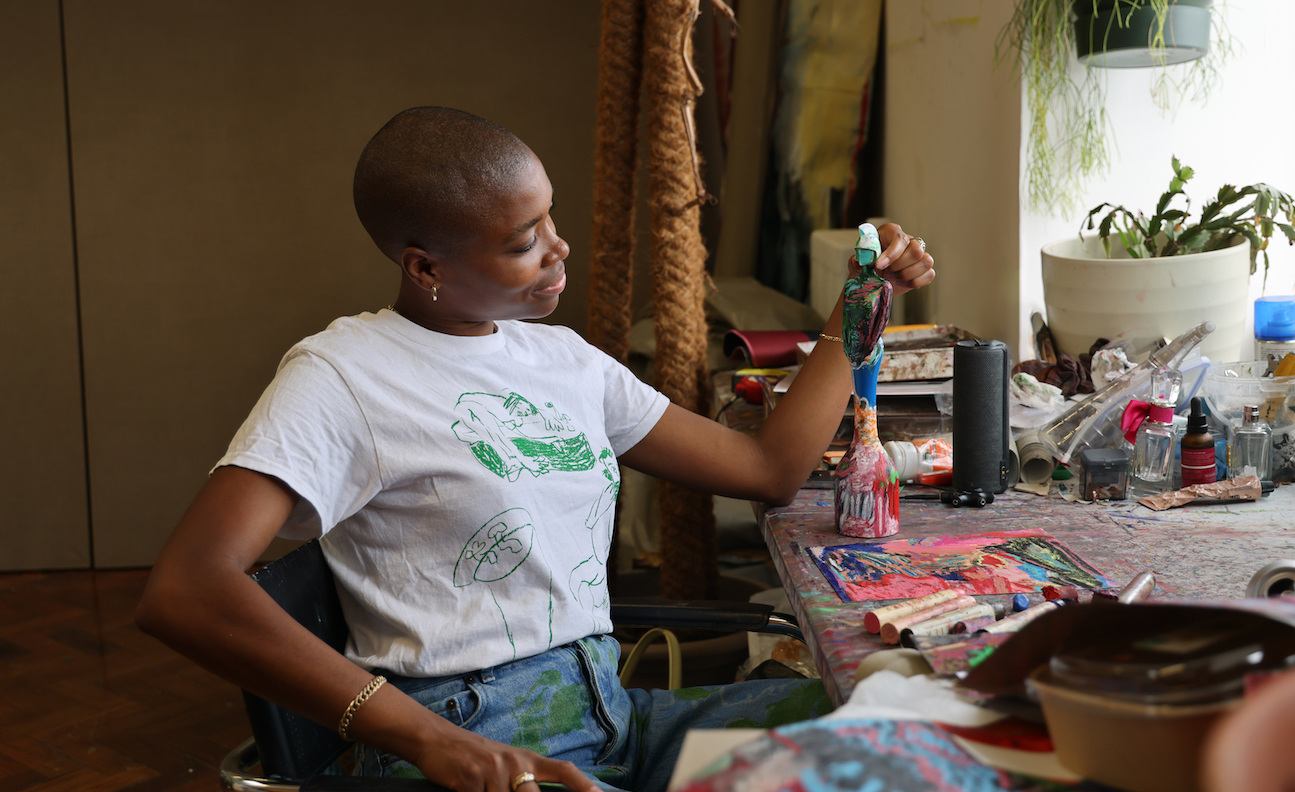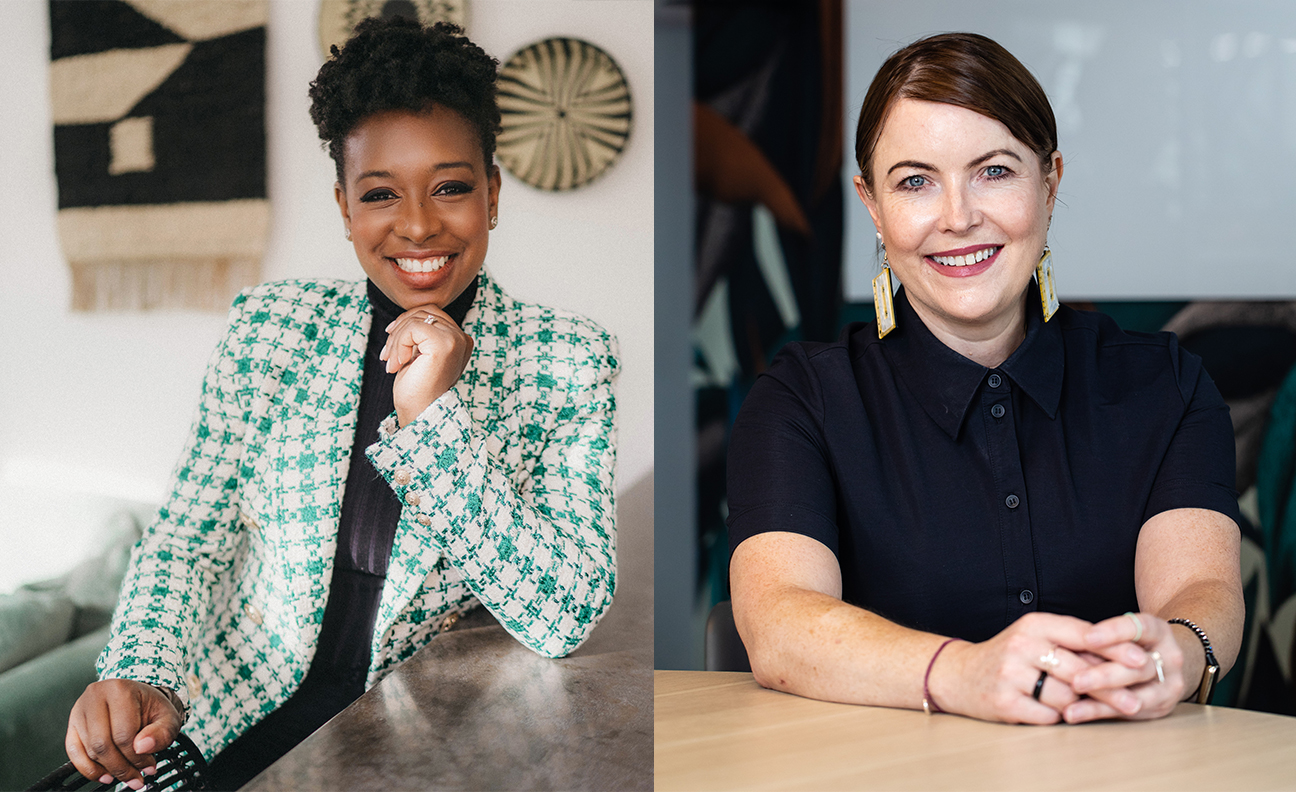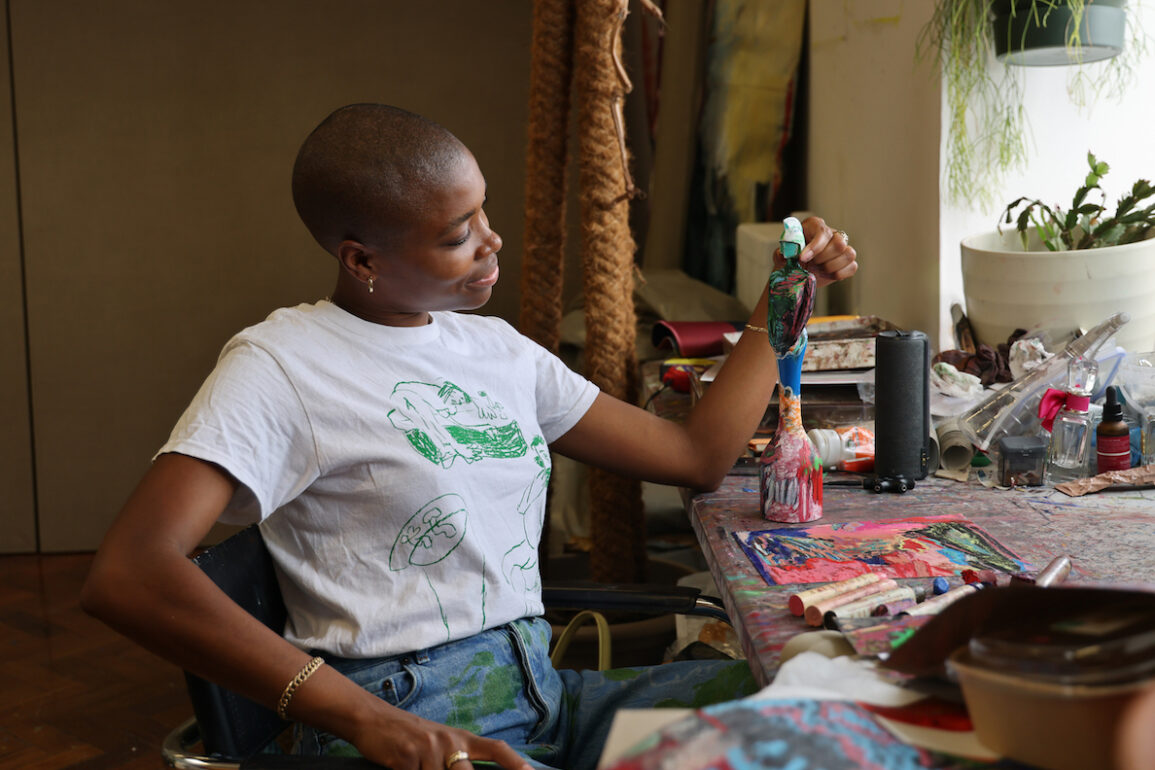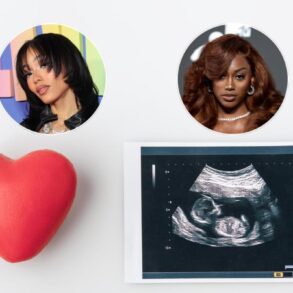The BRIT Awards is changing – again.
After the scrapping of the male and female artist categories in favour of a gender-neutral Artist Of The Year trophy for 2022, there was dismay at the unintended consequences of that move this year – a category dominated entirely by men.
Following an industry consultation, the BRITs – organised by UK labels trade body the BPI – has made key changes for next year to improve representation from 2024.
For next year’s ceremony, the BRITs will increase the number of nominees for both Artist Of The Year and International Artist Of The Year, from five to 10.
The BRIT Awards also announced a new addition to the genre awards categories, which were first introduced in 2022. In 2024, R&B will be one of five genre awards, along with Alternative/Rock, Dance, Pop and Hip Hop/Grime/Rap,
The BRIT Awards with Mastercard 2024 will return for its 44th show on Saturday, March 2, under the stewardship of Atlantic promotions boss Damian Christian as BRIT Committee chair – the BRITs showrunner – for a second year. For its second year as a weekend show, the ceremony will once again take place at The O2 and be screened on ITV.
The 2024 BRITs has revealed the design of the award for next year by British visual artist and painter Rachel Jones. And there are now going to be some more contenders for those coveted trophies…
 Rachel Jones and the 2024 BRIT Award trophy (credit: John Marshall/JMEnternational)
Rachel Jones and the 2024 BRIT Award trophy (credit: John Marshall/JMEnternational)
Artist Of The Year / International Artist Of The Year
The BRITs is increasing nominees in both these categories from five to 10, a move aimed at improving representation and inclusion. It follows extensive consultation within the BRITs organisation, the industry and Equality, Diversity & Inclusion (EDI) groups. It was a key part of the BRITs’ annual review of all show elements, following the 2023 ceremony.
In 2023, the nominees in the Artist Of The Year category were all men: winner Harry Styles, along with Central Cee, Fred Again.., George Ezra and Stormzy. It prompted an outcry, followed by an analysis of why there were no women in the running. Names suggested as contenders who could have been up for the trophy included Florence + The Machine, Charli XCX, Mabel, Rina Sawayama and Ella Henderson.
The key to a lack of female inclusion was the longlist that went to the BRITs Voting Academy of 1,200 members, who choose their top five in order of preference. Of the 70 artists eligible for Artist Of The Year in 2023, only 12 were women. That reduced representation for the longlist, and total absence among the nominees, was attributed to the fact that fewer big female artists were in a release cycle during the 2022 eligibility period. There are also long-term issues with the proportion of women artists signed to labels.
In contrast, there were more women than men nominated in other gender-neutral BRITs categories including Best New Artist and International Artist. Album Of The Year, however, had just one female act, Wet Leg. The duo did collect the awards for Group Of The Year and Best New Artist, following their four nominations (the most nods in 2023, equal with Harry Styles).
R&B genre award introduced
R&B artists including Mahalia spoke out at the lack of representation in 2023, with the genre lumped into a category with pop. For the record, the R&B/pop dual category this year included eventual winner Harry Styles along with nominees Cat Burns, Charli XCX, Dua Lipa and Sam Smith.
Eligibility for the new standalone R&B Award will cover a 24-month period, to ensure that artists that released music in that ‘lost’ year for the genre qualify and are eligible.
Dr. Jo Twist OBE, BPI chief executive, said: “We look forward to celebrating another brilliant year in music, and we are all working hard to deliver another memorable show that will promote the incredible breadth of British and international talent that we have seen flourish and succeed over the past twelve months. The BRITs is committed to making the show as inclusive and representative as possible, the changes to this year’s categories are part of an ongoing process of evolution, and we will continue to review, listen and learn.”
To be eligible for Artist Of The Year (and most other awards), an artist must achieve a Top 40 album or two Top 20 singles between December 9, 2022 and December 8, 2023.
A glance at the past 12 months suggests that female artists in the running for one of those 10 nominee slots include Ellie Goulding, Maisie Peters, Anne-Marie and Raye – who each scored a No.1 or No.2 album – as well as Dua Lipa, Jessie Ware, Mimi Webb, Olivia Dean and PinkPantheress, among others.
To be eligible for one of the genre awards, an artist must have released a Top 40 album or single in the same eligibility period, with the new R&B award eligibility achieved over a 24-month period.
Here, to further explore the changes for the 2024 BRITS, Music Week speaks to BPI CEO Dr Jo Twist and chair YolanDa Brown…
How did the BPI respond to the concerns at the all-male shortlist at this year’s BRITs in the Artist Of The Year category?
Dr Jo Twist: “Well, this year, 2023, was disappointing for everyone, and the work to review the categories – as we do on an annual basis anyway, post-awards – and how it worked started immediately. That consultation work went far and wide to all kinds of music industry people, but also expert groups and individuals. The work to consult them started before I joined, so it kicked off pretty quickly after the awards. That was absolutely the right thing to do. We review the awards every year, and this is obviously a journey that we’re on. It’s a really important journey and important to get it right.”
YolanDa Brown: “We absolutely shared in that disappointment of not seeing any women nominated. I think the main thing for us is, every year, the BRITs reviews the show, the Voting Academy, the voting process, and how it evolves. We are really keen to make sure that the awards is representative and relevant. We do have those cutoff points during the year for eligibility. Release cycles are cyclical and I think it was definitely a year where there were many more high-profile male artist releases. But we went straight into consulting different areas of the industry, especially focusing on equity and diversity and trying to find a solution that still allows us to be integral to our criteria as well.”
The BRITs should be showcasing the breadth of diverse British artists as well as the next generation of talent
Dr Jo Twist
Are you confident these changes will fix the problem? It does still rely on a proportion of female artists being eligible for the award.
JT: “The BRIT Awards is one of the biggest nights in British music and it’s all about celebrating excellence, celebrating outstanding achievement for these artists. But it is also about providing this global stage to showcase our brilliant talent, and quite rightly, it should be showcasing the breadth of diverse British artists as well as the next generation of talent. So, it is an interesting award in that it is about that qualifying criteria of chart success and music trends. It should be reflective of the last 12 months in music, quite rightly. I think the changes that we’re making to the Artist Of the Year category, by expanding from five to 10, is an absolutely brilliant move in the right direction. But we will continue to keep it under review, and make sure that we are taking any further action that we might need to take again when we review it after 2024’s awards.”
YB: “Yeah, I think that’s the interesting part. Because the thing about the BRITs is we want to be as transparent [as possible] with the criteria. You could look at the releases during the year and almost pick out who’s had Top 20 singles, who’s had Top 40 albums. But also, we want to make sure that there are enough nominations to make sure that it’s representative. So with our action this year of having 10 nominees for the Artists Of The Year and the International Artist Of The Year, our hope is that it would make a more representative category. And if it doesn’t, this whole process is a journey and it’s a first step into what we can do to help make sure that those lists look right.”
The Grammys is actually cutting back the nominees in its main categories from 10 to eight. Are you concerned that this wider field will reduce the quality of a BRITs nomination?
YB: “I don’t think so. I think every awards show is unique in its way. The Grammys has how many different categories for the different genres? We have the five [genre awards] that we’re focusing on. So every awards show is unique and different. With how diverse and amazing British music is, I think it’s important that we celebrate it all. And if anything, the BRIT Awards is about really celebrating and building up British talent, and this would be a great way to do that.”
JT: “We always look at what other awards are doing, not just in the music industry but across the creative industries, and I think this is absolutely the right thing to do. It’s far more inclusive if we do expand to 10. And we have made the other changes as well by separating out the pop and R&B categories. It’s just really important that we constantly review [the awards]. It’s not something that you do once, you constantly have to look at the context you’re working in. This is an ecosystem at the end of the day, and we want this to be representative of those great British and international artists that are really diverse. So it will be kept under constant review. We always look at what other awards are doing but the BRIT Awards is a special awards [ceremony] in its own right, so let’s hope that we lead by example, as well.”
Was it a fair observation that fewer female artists were in cycle during 2022?
YB: “I think that’s where the understanding of how the Voting Academy works and how the BRIT Awards are allocated is really important. We have a Voting Academy of 1,200 people in the industry, from musicians to journalists and managers, music lovers, and at the end of the day it does go to them for that final vote. It’s a balanced group, 50-50 In terms of gender, and 25% Black and Asian and minority ethnic as well, and making sure that we get a really good canvas of tastes and lived experience in that voting academy. But, granted, out of those 71 eligible artists [for Artist Of The Year at the 2023 BRITs], 12 of them were women, so we can see that that was quite low as well.”
Is there a wider problem with female talent in the industry? What barriers has the BPI identified in its study announced last year?
YB: “Yes, that work is still ongoing. We’re definitely not there yet, but we are seeing change in terms of women in senior echelons of the music industry. There’s still work to be done in terms of getting more women A&Rs going into the labels, and developing insights into what do artists need in support, is it childcare? You know, what are the different things that women need and the issues that they face, to make sure that they can have a really lucrative career in the industry? As a female artist myself, it’s really great that the spotlight is on this issue, and now it’s one where you’re seeing really great initiatives coming through and there’s more work to be done.”
JT: “We work with partners [on representation]. We’re working with the Diversity Taskforce, for instance, that UK Music runs and that we’re a part of. We have our own EJAG advisory group as well, which is really critical. It’s also about learning and understanding and sharing best practices from other parts of the industry. It’s not just the label side, it is the live side, it is the manager side. It is all parts of this ecosystem that look after and find talent, A&R and all kinds of parts of the industry. So it’s really important that we’re working together to make this the most inclusive industry we can as a collective.”
 YolanDa Brown and Dr Jo Twist
YolanDa Brown and Dr Jo Twist
As a televised awards show, the BRITs has done fairly well over the years as a showcase for female artists…
YB: “Yeah, it’s really refreshing to hear you say that because I know there are pinpoint issues that we need to hone in on and make sure that we get them right. But then when you take the focus out a little bit you see that, even last year, 42% of all the nominees were women soloists or mixed groups. I think six out of the 15 awards were won by women. The Rising Star Award [formerly Critics’ Choice] has been won by women in the most recent years, and in nine out of 15 years since launching in 2008. It was an all-women nominated category last year. So the celebration and the representation of women is there. But we want to make sure that it’s across the board, so that the whole show feels good, feels right and feels equitable. That’s what we’re always striving for every year.”
Is there an added bonus with the 10 nominations, in that it means more chances for an artist to be marketed as BRIT-nominated?
JT: “Absolutely, I mean being a nominee is an absolute privilege and really fantastic. I think it will give more artists that platform when we extend the shortlist to 10, so it does allow more more nominees. Hopefully, it will really reflect the last 12 months in which we have seen some brilliant releases from women artists, so hopefully we will see representation improving on the previous year.”
YB: “There’s always one winner for each of these categories, but to be nominated for a BRIT… You see it in people’s bios, and when we introduce artists on stage and on radio, to be a Grammy-nominated or BRIT-nominated artist, it really means something. So to think that the Artist Of The Year category now has five extra artists who will be able to leverage that in their promotion, I think that can only be a good thing.”
Turning to the new R&B genre award, what was the thinking there? Was it a mistake pairing it with pop?
YB: “Mistake is a very strong word, everything is a learning journey. Especially with the genre category, when we reviewed the awards show, there’s that element of making sure that it’s a TV show that fits into two hours, but also staying true to the genres that are there. I think R&B especially should be recognised, it’s the basis of a lot of the music we’re listening to now. Really, it needs its own definitive section, it needs its own definitive criteria and those artists to come through. I think this change will really help that, and make sure that the artists that are true to the one gender can be recognised in the category that they want to be in.”
JT: “We introduced four genre-based awards, as you know, in 2022 with the aim to show more inclusively and shine a light more broadly on the brilliant breadth of UK talent. But it was clear again as part of this review that, because R&B was with pop, artists or labels couldn’t [make clear] what genre they classify themselves as. After consultation, and really focusing on what can be done, the consultees highly recommended separating that out so that it was a distinct category in its own right as R&B. So hopefully we’ll see some fantastic nominees in that category this year.”
How important is homegrown R&B and does it get enough respect? There’s a sense in which it’s been a bit sidelined in recent years…
YB: “Yeah, and I hope that this is a really great step towards changing that. It is a really important genre, you’re seeing it at festivals and in terms of the listenership. Maybe it doesn’t have as much commercial success in the way that we’re measuring it. But this homegrown R&B talent needs to be recognised and they really do contribute so much to our British culture, so I think it’s great and it deserves more respect.”
Mahalia was particularly outspoken about the lack of recognition for R&B. How did the BPI reach out to those working in the genre?
YB: “During this process, [the BPI] was reaching out to Black executives that work in the sector, reaching out to the labels that represent these artists as well to really get a good grasp on [the issue]. I mean, we can understand the comments as well. But it was about really getting a good grasp on what we can do to showcase it even more. And you know, we always welcome the views and perspectives of people who want to review what’s happening with the BRIT Awards. With those consultations, this is how we got to this point, and it’s quite exciting what this category will hold.”
There’s still work to be done in terms of getting more women A&Rs going into the labels
YolanDa Brown
Do you think other parts of the industry could do more to back domestic R&B, be it labels, DSPs or radio? We’ve seen some UK acts go off and launch careers in the US…
JT: “Absolutely. There’s always more that different platforms and different people can do as part of the music industry, and raising the profile of diverse artists, diverse genres of music. There’s so much excitement in the music industry at the moment, and so many ways to showcase brilliant music and brilliant artists. There’s always more work that we can all do collectively to shine a spotlight on diversity, and the diversity of genres and creativity that we have in this brilliant industry.”
YB: “Yeah, Anything that we can do as the BRITs to wave that flag and maybe be the spark that drives others [to support R&B]. You know, the thing is with the BRITs, you have playlists that come out, you have so many different highlights of what happens at the BRIT Awards. So I hope that it will be a lovely catalyst. Artists go into different markets to build their name and then they come back home and they’re welcomed with open arms, it’s not a bad thing. Right now, especially with streaming, it is a global music market. So I think it’s not a bad thing, but anything that we can do at home to grow our talent, hopefully this will make a good step towards that.”
So the BRITs might even help deliver a boost for UK R&B…
JT: “Yeah, I think when you create a space, people have more opportunity to fill that space. We’ve seen the amazing impact that Ezra Collective had by winning the Mercury Prize, and putting jazz back on the table if you like, really giving a boost to that genre. I’m personally a big believer in creating that space, particularly inclusive spaces.”
Finally, are you looking forward to the show? Has it been a good year for British music to celebrate at the BRITs 2024?
YB: “Absolutely, we’re going to have a really wide show, if I can describe it that way. I think so much has happened with British music this year from our iconic legendary acts and the legacy acts through to the new music that’s coming through, and through to our rising stars as well. At the BRIT Awards, we hold a mirror up to the year in music, right? I think we’ve had a really great year and it will be a true celebration.”
JT: “Oh, it’s going to be a fantastic night and I’m very excited to actually be a part of it rather than watching it on the telly – which is a very valuable experience in its own right. But it’s going to be so exciting to be there. It has been an amazing year for music. It’s been an amazing year, I think, for female artists. I really look forward to diving straight in next March.”
This post was originally published on this site be sure to check out more of their content.






